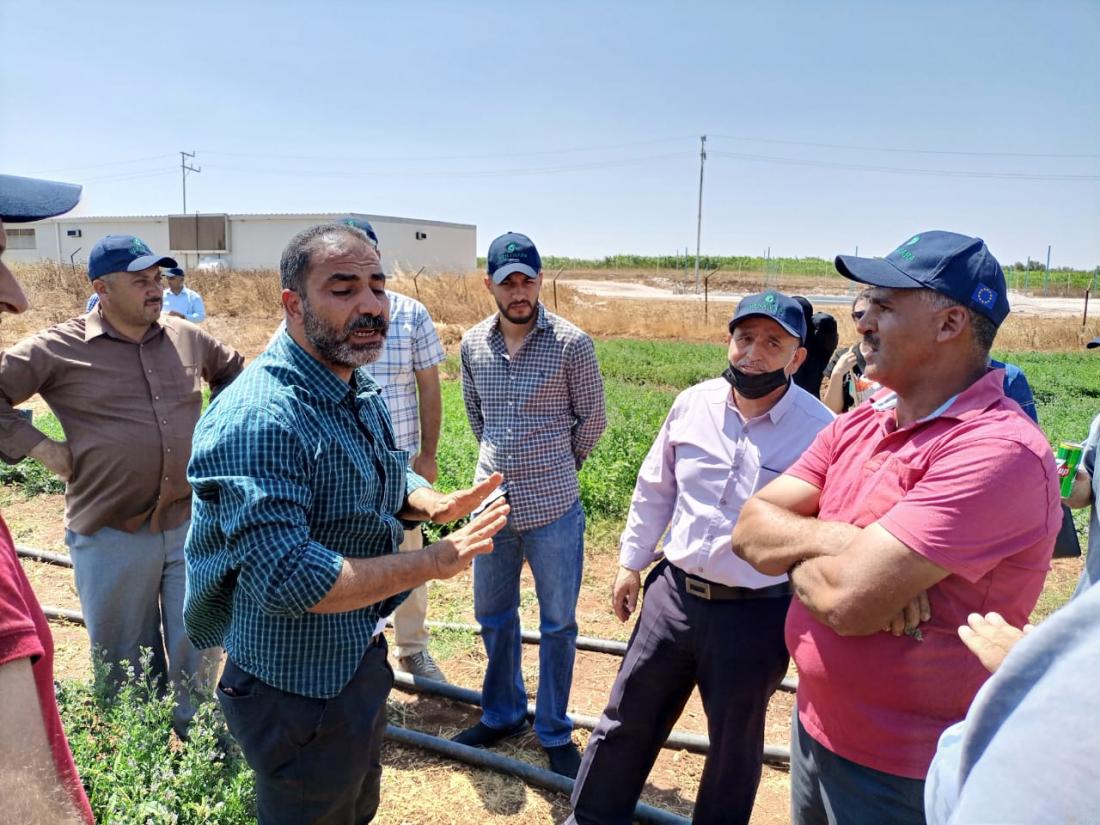Reusing Non-Conventional Water in Agriculture: a workshop in Jordan by MENAWARA project

Eight farmers, three students from Jordan University of Science and Technology JUST (Faculty of Agriculture), an official of Ministry of water and irrigation, five technichians of Ramtha wastewater treatment plant and three National Agricultural Research Center (NARC) researchers discussed the project issues and the primary results with the stakeholders in addition to conduct a visit for the demo site.
Dr. Naem Mazahrih, MENAWARA project coordinator in Jordan, opened the workshop and presented it as one of the project activities to enhance access to water through wastewater treatment to be used as supplementary irrigation and to enhance the capacity of government institutions and non-governmental actors operating in the sector, as well as technicians and farmers.
Dr. Abeer Albalawneh, a project researcher, informed about the preliminary results and the outcomes of the comparison between the four different types of irrigation systems (drip, subsurface, surface and sprinkler irrigation) used to irrigate alfalfa. The preliminary results indicated the superiority of the subsurface irrigation system in production, quantity, quality and less water consumption over all the aforementioned systems under the conditions of using treated wastewater (non-conventional) to irrigate the alfalfa crop.
Engineer Yahya Bani Khalaf, the director of the Ramtha regional Agricultural Research Center, said that the center's research stations are implementing participatory field experiments with farmers. The Ramtha research station for treated waste water aims to find sustainable solutions for the use of this water in agriculture through the implementation of many experiments on different types of crops and irrigation systems with different water qualities.
During the workshop, the project demo site was visited, where the farmers were informed by the eng. Ahmed Abu Delo (project researcher). Participants clearly noticed the differences between the different irrigation methods in the field. They also discussed with the project team the primary results of using different irrigation systems on the crop productivity and health, in addition to informing them about the safe use of treated water in agriculture.







